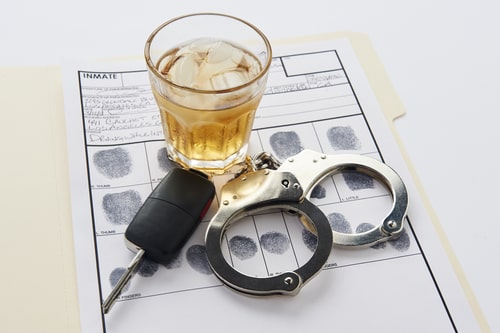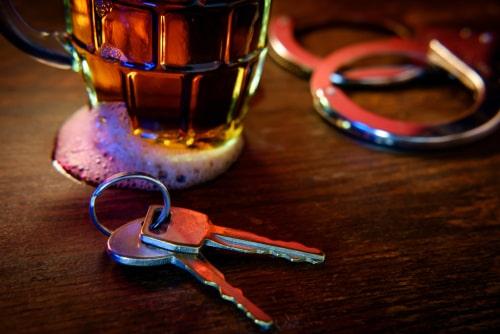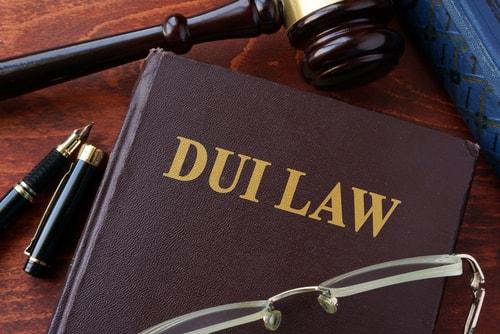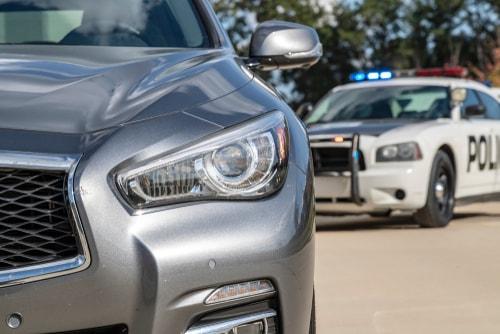Recent Blog Posts
Can I Still Face Consequences for Marijuana Use in Illinois?
 When Illinois Governor J.B. Pritzker signed a bill in June of 2019, to make marijuana legal, Illinois became the eleventh state in the United States to legalize recreational marijuana use. The new law officially came into effect on January 1, 2020. Last week, thousands of Illinoisans flocked to cannabis stores to legally purchase marijuana for the first time in Illinois. When some people hear the word legal, they immediately think that means no limits. In all reality, Illinois’ new law comes with a number of restrictions and guidelines. If you are facing drug charges, it is time to speak with a skilled legal professional.
When Illinois Governor J.B. Pritzker signed a bill in June of 2019, to make marijuana legal, Illinois became the eleventh state in the United States to legalize recreational marijuana use. The new law officially came into effect on January 1, 2020. Last week, thousands of Illinoisans flocked to cannabis stores to legally purchase marijuana for the first time in Illinois. When some people hear the word legal, they immediately think that means no limits. In all reality, Illinois’ new law comes with a number of restrictions and guidelines. If you are facing drug charges, it is time to speak with a skilled legal professional.
Restrictions to the Marijuana Law
First and foremost, while Illinois’ new marijuana law legalizes recreational marijuana use, it does not legalize it for everyone. Much like with the consumption of alcohol, minors under the age of 21 caught using marijuana will likely face criminal charges. It is also important to note that legal does not mean anywhere. You are legally allowed to smoke marijuana in a private residence or in an established smoke area (in a private establishment). Any private business owner can prohibit the use of marijuana on their property. Marijuana use is also prohibited in motor vehicles, in public parks, and in the presence of a minor.
Penalties for an Aggravated DUI in Illinois
 Every year, thousands of people are arrested for driving under the influence of drugs or alcohol, throughout the state of Illinois. According to Illinois state law, a first-time DUI conviction constitutes a Class A Misdemeanor. Along with the criminal charge, a conviction will likely lead to significant fines and serious rises in insurance rates. Recognizing this, all DUI charges should be taken seriously, but some can come with harsher criminal punishment. If you have been charged with an aggravated DUI, it is time to seek out the help of a trained legal professional.
Every year, thousands of people are arrested for driving under the influence of drugs or alcohol, throughout the state of Illinois. According to Illinois state law, a first-time DUI conviction constitutes a Class A Misdemeanor. Along with the criminal charge, a conviction will likely lead to significant fines and serious rises in insurance rates. Recognizing this, all DUI charges should be taken seriously, but some can come with harsher criminal punishment. If you have been charged with an aggravated DUI, it is time to seek out the help of a trained legal professional.
What Is an Aggravated DUI?
An aggravated DUI is a DUI charge that is elevated in severity due to the presence of any number of aggravating factors. These aggravating factors can include being charged with a DUI in which severe bodily harm was caused, the DUI was committed without a proper driver’s license or a DUI charge in which the offender had previously been convicted of a DUI.
How a CDL Violation Can Impact You
 Commercial truck drivers are held to incredibly high standards. Every single action they take is heavily monitored and scrutinized, and for good reason. Considering the size and braking capabilities of the vast majority of commercial trucks, ensuring the safety of other travelers can only be possible through the strict enforcement of regulatory standards. A CDL violation can come with life-changing ramifications. If you have been charged with a CDL violation, it is time to seek out the assistance of a knowledgeable attorney.
Commercial truck drivers are held to incredibly high standards. Every single action they take is heavily monitored and scrutinized, and for good reason. Considering the size and braking capabilities of the vast majority of commercial trucks, ensuring the safety of other travelers can only be possible through the strict enforcement of regulatory standards. A CDL violation can come with life-changing ramifications. If you have been charged with a CDL violation, it is time to seek out the assistance of a knowledgeable attorney.
The Implications of a CDL Violation
CDL violations can come in any number of forms. A violation can be strictly centered around driver error, such as a speeding citation, erratic lane changing, or following another vehicle too closely. In other instances, a violation can come from a driver violating their contract and using drugs or alcohol while on the job. Some of the most common violations have nothing to do with the driver themselves and are caused by negligence on the part of the trucking company. These violations can include falsification of driving log hours or operating an overweight cargo. Regardless of the type of violation, it is time for you to react.
The Ramifications of a Serious Drug Charge in Illinois
 Here in the state of Illinois, severity of drug possession charges can depend on a number of criteria. Much like in many other states, the severity of potential criminal charges will mostly depend on the amount of narcotics and the type of substance. Recognizing the fact that Illinois is facing major issues involving drug use and drug-related fatalities, the state decided to establish the Illinois Controlled Substances Act designed to criminalize possession and intent to distribute certain controlled substances. Below we will discuss how a drug possession charge can impact you, and how you should react if you have been charged with drug possession.
Here in the state of Illinois, severity of drug possession charges can depend on a number of criteria. Much like in many other states, the severity of potential criminal charges will mostly depend on the amount of narcotics and the type of substance. Recognizing the fact that Illinois is facing major issues involving drug use and drug-related fatalities, the state decided to establish the Illinois Controlled Substances Act designed to criminalize possession and intent to distribute certain controlled substances. Below we will discuss how a drug possession charge can impact you, and how you should react if you have been charged with drug possession.
Drug Possession in Illinois
A lot has changed in the past year, as it pertains to drug possession law in the state of Illinois. The Cannabis Regulation and Tax Act will go into effect in January, changing how law enforcement officials will regulate the recreational use of marijuana. With the passing of the new law, a person will now be able to legally possess up to 30 grams of marijuana. If a person is apprehended with anywhere from 30 to 100 grams, they will face misdemeanor charges, up to one year in prison, and fines as high as $2,500.
Regaining Your Driving Privileges After a DUI
 After being convicted of a DUI, it is common to feel helpless or depressed. For many people convicted of driving under the influence, the hardest post-conviction adjustment is living without driving privileges. Fortunately, for many convicted drivers, it is possible to regain your driving privileges. Below we will examine some forms of licensing you can secure after a DUI conviction, and the steps you need to take to regain your driving privileges.
After being convicted of a DUI, it is common to feel helpless or depressed. For many people convicted of driving under the influence, the hardest post-conviction adjustment is living without driving privileges. Fortunately, for many convicted drivers, it is possible to regain your driving privileges. Below we will examine some forms of licensing you can secure after a DUI conviction, and the steps you need to take to regain your driving privileges.
Types of Restricted Licenses
In 2019, 91% of drivers arrested for driving under the influence in the state of Illinois lost their driving privileges. Fortunately, a suspension or revocation does not mean that the person will be unable to drive.
A first-time DUI offender can obtain a Monitoring Device Driving Permit (MDDP). In order to obtain the MDDP, the driver must go through the Secretary of State’s office. Once the MDDP has been obtained, the driver must install a Breath Alcohol Ignition Interlock Device (BAIID). In short, the BAIID will test the driver’s blood alcohol content before allowing the vehicle to start. If the driver installs the system, they will be permitted to drive without restrictions. That being said, if a driver with an MDDP is caught driving in a vehicle without a BAIID registered to them, they will face potential felony charges.
Examining Juvenile Arrest Rates and Consequences
 Here in the state of Illinois, the way in which a juvenile is tried in court will depend entirely on the crime they committed. If the crime is a serious criminal offense, that would likely constitute a felony charge, such as a sexual assault or homicide charge, they will likely be charged as an adult. For other offenses, such as a minor in possession of drugs or alcohol charge, the juvenile will be tried in juvenile court. While the vast majority of juvenile court mandates revolve around probation, rehabilitation, and possible fines, the long-term implications of a juvenile crime can last a lifetime. Below we will take a brief look at juvenile arrest rates throughout the United States, and the potential consequences a juvenile could face after an arrest.
Here in the state of Illinois, the way in which a juvenile is tried in court will depend entirely on the crime they committed. If the crime is a serious criminal offense, that would likely constitute a felony charge, such as a sexual assault or homicide charge, they will likely be charged as an adult. For other offenses, such as a minor in possession of drugs or alcohol charge, the juvenile will be tried in juvenile court. While the vast majority of juvenile court mandates revolve around probation, rehabilitation, and possible fines, the long-term implications of a juvenile crime can last a lifetime. Below we will take a brief look at juvenile arrest rates throughout the United States, and the potential consequences a juvenile could face after an arrest.
Juvenile Arrest Rates on the Decline
Nationwide, juvenile arrest rates appear to be on the decline. According to the U.S. Department of Justice, 2016 marked one of the lowest statistical years for juvenile crime in recent memory. Serious juvenile crimes such as violent crimes and robbery with an assault weapon had dropped to their lowest in over 5 years.
Why You Need to Take Your First DUI Charge Seriously
 Some people believe that a first-time DUI conviction will not come with significant legal ramifications. This notion could not be further from the truth. While it is true that DUI charges will increase in severity for repeat offenders, a first-time DUI offender can face life-changing implications in the event of a conviction. Below we will examine some of the possible ramifications of a DUI conviction and how you need to react to a charge. If you are facing DUI charges, contact a skilled criminal defense attorney immediately.
Some people believe that a first-time DUI conviction will not come with significant legal ramifications. This notion could not be further from the truth. While it is true that DUI charges will increase in severity for repeat offenders, a first-time DUI offender can face life-changing implications in the event of a conviction. Below we will examine some of the possible ramifications of a DUI conviction and how you need to react to a charge. If you are facing DUI charges, contact a skilled criminal defense attorney immediately.
The Consequences
The first thing you need to understand is that a first-time DUI conviction constitutes a Class A Misdemeanor in the state of Illinois. Along with potential fines, drug and alcohol classes, community service, and even potential jail time, a conviction comes with a one-year license revocation period. It should be noted that in the state of Illinois, 91% of all drivers arrested for DUI in 2017 lost their driving privileges for some period of time. Outside of the concrete legal consequences, a DUI conviction can result in serious rises in your insurance rates. It is important to understand that there are a number of circumstances that can lead to an elevation of the charge from a Class A Misdemeanor to a Class 4 Felony.
How Underage Drinking Can Impact Your Child
 Raising a child is never easy, raising a teenager can come with even more unforeseen challenges. Parents of teens constantly worry about their child drinking underage, for good reason too. According to the National Institute on Alcohol Abuse and Alcoholism, teens aged 12 to 20 consume approximately 11% of the nation’s alcohol. While the vast majority of underage drinking concerns revolve around the health implications of alcohol consumption, the legal ramifications of an underage drinking charge can drastically change your child’s life.
Raising a child is never easy, raising a teenager can come with even more unforeseen challenges. Parents of teens constantly worry about their child drinking underage, for good reason too. According to the National Institute on Alcohol Abuse and Alcoholism, teens aged 12 to 20 consume approximately 11% of the nation’s alcohol. While the vast majority of underage drinking concerns revolve around the health implications of alcohol consumption, the legal ramifications of an underage drinking charge can drastically change your child’s life.
Underage Drinking Charges in Illinois
In the state of Illinois, underage drinking comes with significant criminal punishments. According to state law, consumption or purchase of alcohol by a minor constitutes a Class A Misdemeanor. A Class A Misdemeanor can lead to up to one year in jail-time and fines as high as $2,500. Your child could also face a six-month license suspension, even if the minor was not operating a vehicle. Outside of the initial legal consequences, a conviction of this magnitude can impact your child’s options of advanced education opportunities.
Examining the Most Common CDL Violations
 When a person earns a commercial driver’s license (CDL), they are granted the privilege to operate large commercial vehicles on a consistent basis. Commercial driver’s licenses are not handed out without a strict regulatory process, considering the increased likelihood of potential collisions. That being said, it should come as no surprise that losing a CDL can be much easier than most people would like to assume. Below we will examine some of the most common CDL violations and how you should react if you believe you may be in danger of losing your CDL.
When a person earns a commercial driver’s license (CDL), they are granted the privilege to operate large commercial vehicles on a consistent basis. Commercial driver’s licenses are not handed out without a strict regulatory process, considering the increased likelihood of potential collisions. That being said, it should come as no surprise that losing a CDL can be much easier than most people would like to assume. Below we will examine some of the most common CDL violations and how you should react if you believe you may be in danger of losing your CDL.
Common CDL Violations
When a person is cited for violating the regulations of their CDL, the coming weeks can be quite frightening. For commercial truck drivers, a CDL is critical to a healthy financial future. If you have been cited for violating your CDL privileges, it is time to seek out the assistance of a skilled legal professional.
The Impact of Multiple DUI Convictions
 Throughout the state of Illinois, upwards of 25,000 people are charged with driving under the influence of drugs or alcohol, on an annual basis. Despite the large number of DUI arrests made each year, a DUI charge is not something to be taken lightly. A first-time DUI offender can face a number of serious consequences, most notably fines and possible loss of driving privileges. Once a person has been convicted of one DUI though, the stakes are raised significantly. Having multiple DUI convictions on one’s personal record, can seriously alter a person’s life, and significantly impact their livelihood. Below, we will examine the impacts of multiple DUI convictions, and how to react if you are facing inebriated driving charges.
Throughout the state of Illinois, upwards of 25,000 people are charged with driving under the influence of drugs or alcohol, on an annual basis. Despite the large number of DUI arrests made each year, a DUI charge is not something to be taken lightly. A first-time DUI offender can face a number of serious consequences, most notably fines and possible loss of driving privileges. Once a person has been convicted of one DUI though, the stakes are raised significantly. Having multiple DUI convictions on one’s personal record, can seriously alter a person’s life, and significantly impact their livelihood. Below, we will examine the impacts of multiple DUI convictions, and how to react if you are facing inebriated driving charges.
The Consequences of Multiple Convictions
Given the inherent dangers of driving under the influence of alcohol (more than 300 people were fatally injured in crashes involving drunk drivers in Illinois, throughout 2017), it should come as no surprise that the charges rise significantly in severity if a person is convicted multiple times. According to Illinois state law, a first-time DUI offense will result in a Class A misdemeanor and a one-year license revocation period.

 630-448-2001
630-448-2001






